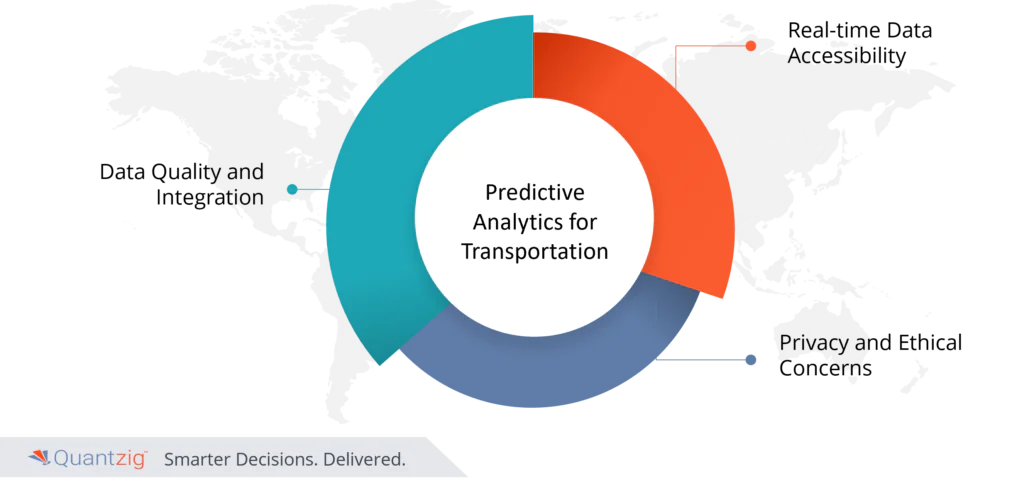Written By: Sudeshna Ghosh
Table of Contents
Introduction to Predictive Analytics in Logistics Industry
Predictive analytics has revolutionized the logistics and transportation industry by enabling businesses to anticipate and prepare for future events. By leveraging historical data, machine learning algorithms, and real-time insights, companies can optimize their operations, reduce costs, and improve customer satisfaction. In this article, we will explore the importance of predictive analytics in logistics and transportation, discussing its applications, benefits, and challenges.
We will delve into the various ways predictive analytics can improve route optimization, inventory management, and risk management, and its role in enhancing customer service and reducing costs. Additionally, we will examine the key stages involved in implementing predictive analytics, including data collection, normalization, and deployment. By understanding the power of predictive analytics in logistics and transportation, businesses can make informed decisions and stay ahead of the competition in this rapidly evolving industry.
Book a demo to experience the meaningful insights we derive from data through our GenAI tools and platform capabilities. Schedule a demo today!
Request a Free DemoWhat is the Role of Predictive Analytics in the Transportation Industry?
Transport authorities across the globe believe that obtaining insights from real-time information tracking or live data can help them find the best alternatives to get from one place to the other: thereby, reducing delays, improving customer experience, and ensuring the holistic transformation of urban mobility. Transportation predictive analytics and simulation market tools provide a wider picture of transport conditions by offering bus or trains schedules, and parking availability, thus, developing mobile user-friendly and smarter services. Public transport authorities can use transportation analytics solutions to promote the usage of a more sustainable mode of transport among individuals in metro cities.
Using advanced logistics and transportation analytics solutions with predictive modeling, Quantzig can enable you to harness the true potential of your data to bring about significant improvements in route optimization, traffic management, logistics management, predictive maintenance, and more.
Get started with your complimentary trial today and delve into our platform without any obligations. Explore our wide range of customized, consumption driven analytical solutions services built across the analytical maturity levels.
Start your Free Trial todayPredictive Analytics and Public Transportation
Predictive analytics transportation has the potential to improve public transport across the globe by analyzing people’s movement between and within different cities. It helps in determining the schedules of public transport such as buses and trains, forecasting weather conditions, and analyzing the effect of both on commuters. Advanced machine learning algorithms and predictive analytics in logistics industry can be used to track bus and train schedules, breakdowns, and eliminate signal or network issues by determining alternative options and mitigating its impact.
Predictive data analytics and planning tools help determine the impact of traffic congestion and on-going maintenance projects on public transit networks; thereby, devising alternative transit schedules and message strategy. Big data analytics transportation can be used to predict the impact of unplanned events such as a traffic accident, warehouse management problems, vehicle breakdown, transport labor strike, etc. and their impact on the local economy.
How to Overcome Challenges in Predictive Analytics for Transportation:

- Data Quality and Integration: Challenges arise from the diverse sources of transportation data. Ensuring data quality and integrating information from various platforms is crucial for accurate predictions. Robust data governance practices and collaboration between stakeholders can address this challenge effectively.
- Real-time Data Accessibility: To maximize the benefits of predictive logistics and analytics, transportation entities need real-time data accessibility. Investing in advanced data analysis infrastructure and communication networks can enhance the availability of live data and enhance supply chain operations, enabling more accurate predictions and timely decision-making.
- Privacy and Ethical Concerns: The use of predictive analytics in logistics raises privacy and ethical concerns, particularly in handling sensitive data related to passenger movements. Implementing stringent privacy policies, ensuring data anonymization, and obtaining informed consent are essential measures to address these concerns.
Experience the advantages firsthand by testing a customized complimentary pilot designed to address your specific requirements. Pilot studies are non-committal in nature.
Request a Free PilotConclusion:
Predictive or logistics analytics is reshaping the transportation industry by providing actionable insights, improving operational efficiency, and enhancing the overall travel experience. By overcoming challenges related to data quality, real-time accessibility, and ethical considerations, the industry can fully harness the transformative potential of predictive analytics. As the transportation landscape evolves, the integration of advanced software and predictive analytics in logistics industry becomes not only a necessity but a strategic imperative for demand forecasting techniques, automation, inventory management and sustainable and efficient mobility solutions.





